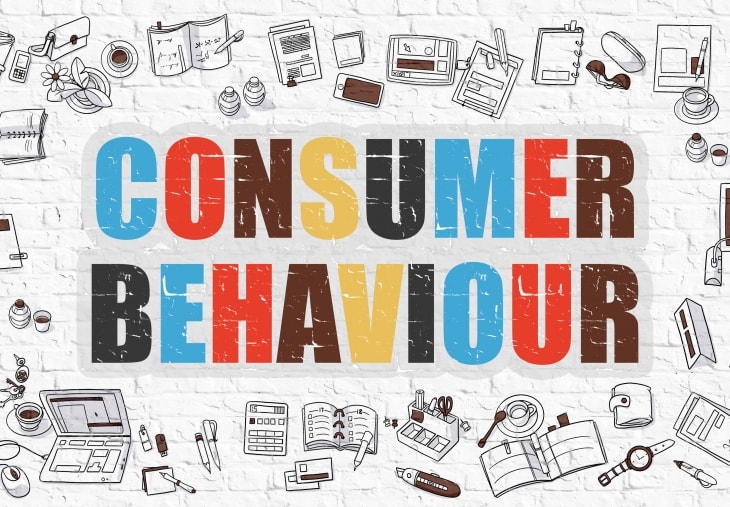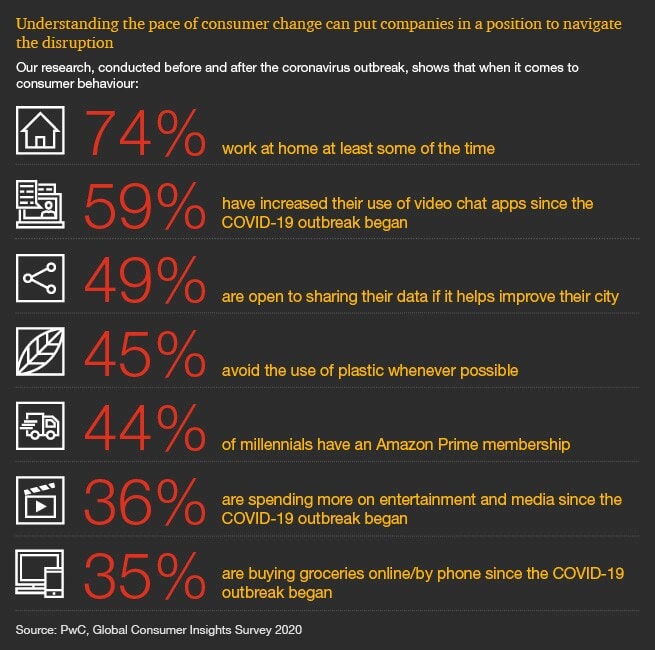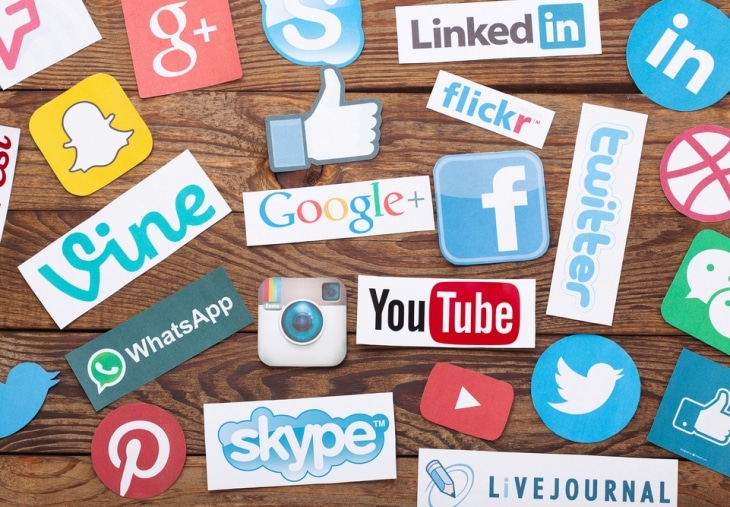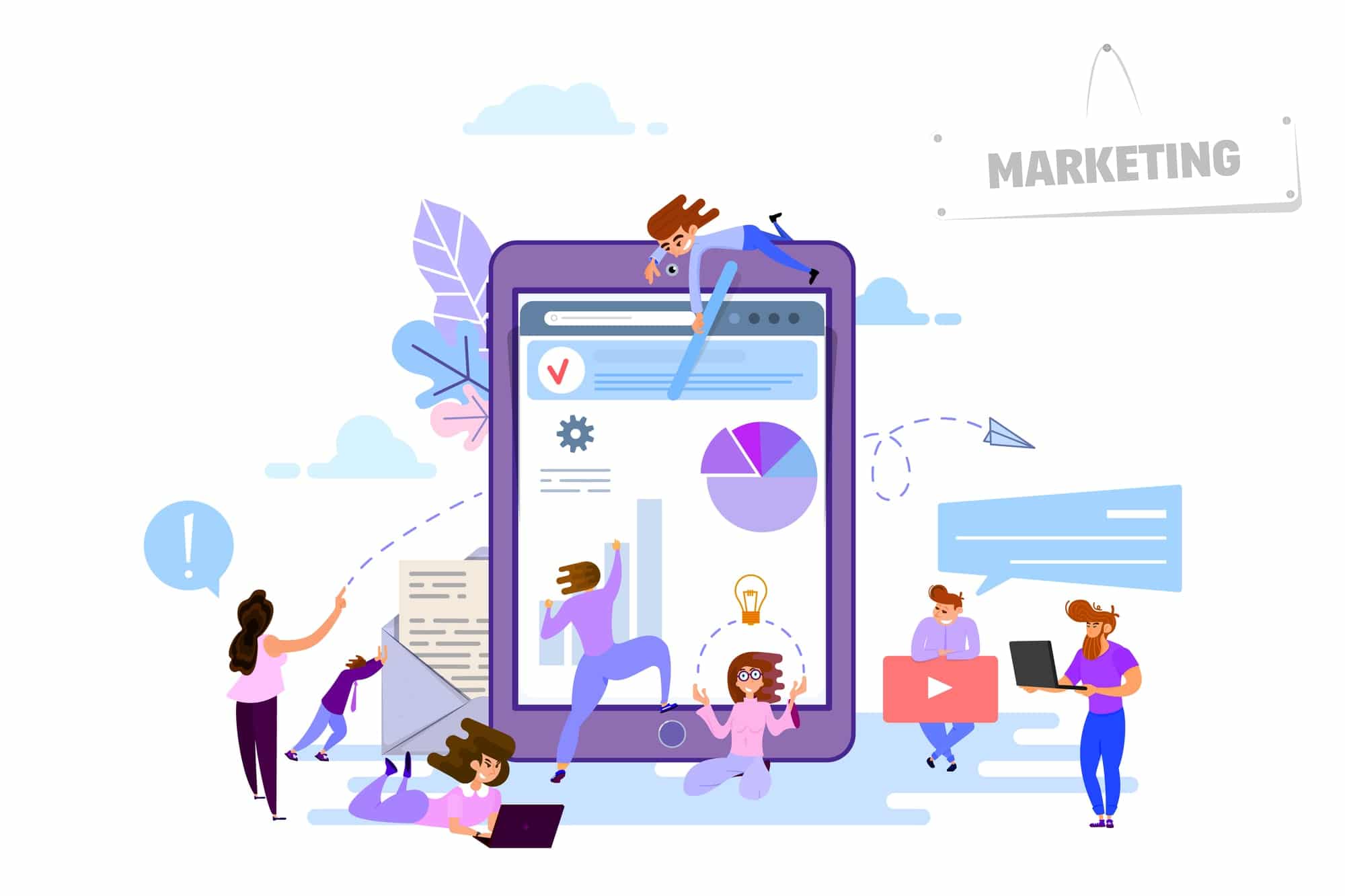If there is one thing we know about the current economic crisis, it’s that companies are going to need to re-strategise their future business plans around very different Singaporean consumer behaviors.
The pandemic has observably produced two distinctive behavioral archetypes.
People who have embraced a new lifestyle and developed new Singapore spending habits, and those who have largely remained unchanged.
New Singaporean consumer behaviours that arose from the pandemic will have an enduring impact on society, and undoubtedly, on the future of brands.
Most brands will need to figure out how to retain their regular customers and their new buying behaviour, with improved strategies. Whereas, some brands will use the opportunity to steal market share by appealing to consumers who have picked up new buying habits and consumer trends.
Companies whose transformation efforts were lagging before the crisis will find it the best time to catch up now, centering heightened customer engagement and experience.
And those who were performing sufficiently before COVID-19 must still grapple with significant changes to spending patterns and behaviors that have shifted to new sales channels.
As the economic recovery may not be swift, this may be an opportunity for both growth and cost reduction.
But in order to tap into that opportunity, businesses have to know, then act on changed and changing Singaporean consumer behaviour.
(Forbes)
New Norm Emerging in Singaporean Consumer Behaviour
So… in 2020, many of us were forced to change our lifestyles due to government-implemented measures to cope with the COVID-19 situation. Some of these changes somehow made an irreparable, enduring impact on both us and brands, that are expected to follow in a post-COVID-19 world.
Are the demands of our “evolved customers” from 2020 and beyond, matching what retailers are currently offering?
Are businesses filling the gaps to meet your prospects’ new and changing needs?
If you are a local business owner reading this, have you reinvented your business with all the new touchpoints with an updated purchase journey mapping?
If you are answering no, or are unsure, your business is at the mercy of the global economic recession plunge.
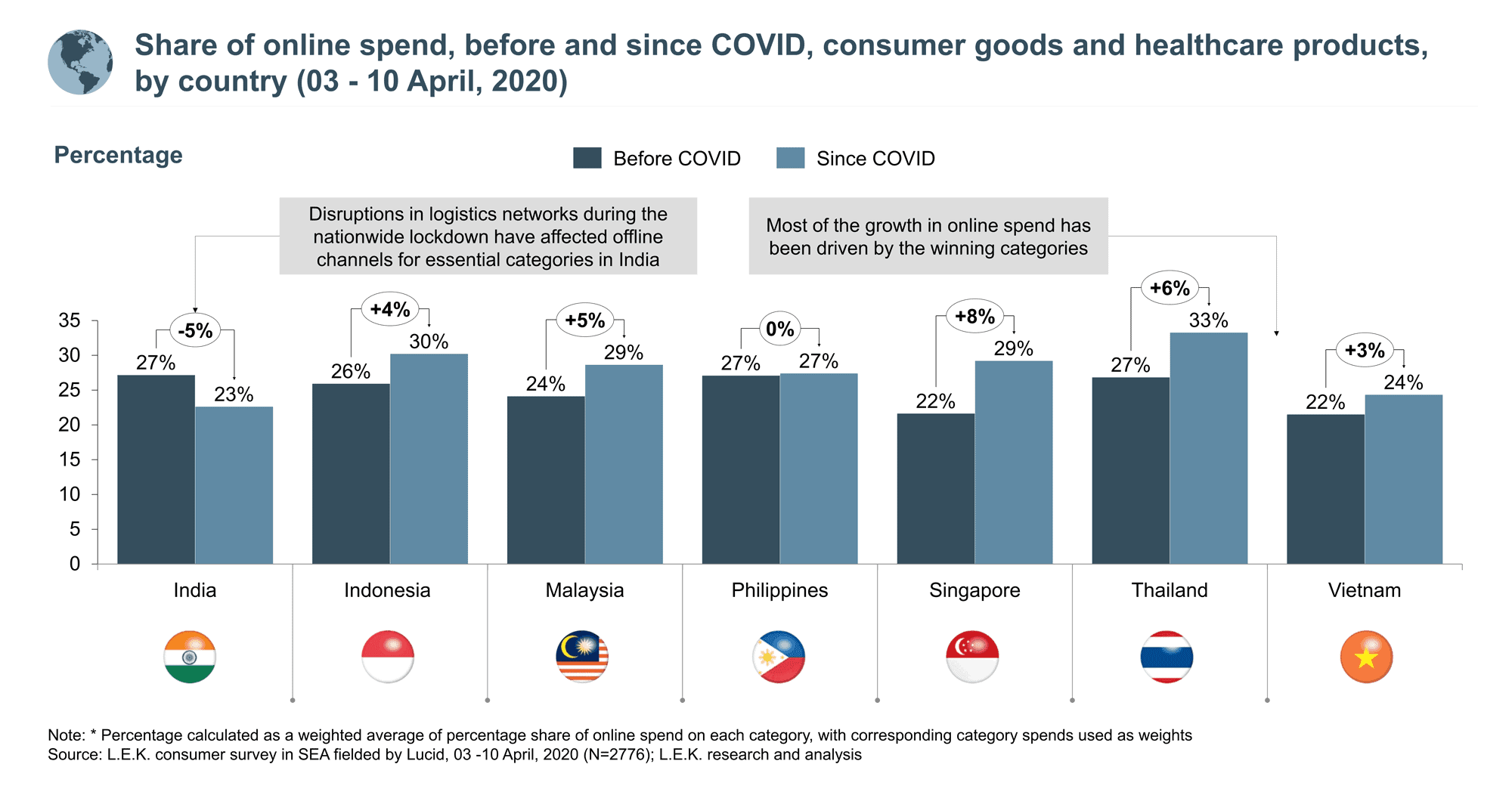
Some key findings on shifting Singaporean consumer behaviour and what they represent
1. Shift to mindful shopping (convenience and value)
COVID-19 drove higher sales in eCommerce and online shopping especially for FMCG products (personal care, home care, beverages, packaged food) as 7 in 10 consumers are shopping online to stock their pantry. This behaviour is surveyed and forecasted by experts to endure long after the pandemic ends.
Nielsen’s COVID-19 dipstick in March 2020 found that 69% of people surveyed who bought household goods online for the first time during COVID-19 will do so again in the next 12 months.
In South-east Asia, e-commerce takings soared 96 percent for the week ended May 11, as compared with the same period last year, according to advertising platform Criteo.
While many businesses face disruption or even complete closure, the health and wellness category has gained significant momentum as people start placing more importance on their health, hygiene, and mental well-being.
Consumers are now making more mindful choices when shopping, which is predictable during an economic recession period.
“Do I really need this?” “Can I do this myself? ” are typical mindsets when consumers are gearing up for the upcoming battle of economic uncertainty.
As consumers are starting to put a real focus on sustainability when choosing products, brands should market with a social cause and have transparent sourcing that brings a genuine human connection.
2. Anticipate pulling back on spending
According to new surveys, many Singaporeans plan to draw down their overall spending over the next 12 months at least.
The economic consequences of the coronavirus pandemic are devastating and many consumers are less inclined to spend more, as income continues to fall in the coming months. For example, spending on recreational services and on food services, and accommodation has fallen sharply as consumers shun overly crowded areas like theaters, theme parks, restaurants, and bars.
At the same time, many consumers indicated that they have already been relying more on products and services to entertain, feed, and care for themselves at home as they avoid public places. Nearly 53% said that they are using more cleaning supplies, such as bleach and disinfecting wipes, as a result of the pandemic, while 41.4% said they were buying more groceries and 31.2% referenced higher usage of video streaming services such as Netflix Inc.
-SPglobal
While the cutback on purchases and spending affects service industries that consumers consider “non-essential” most, there is a sharp increase in consumers’ reliance on digital services, opening other windows of opportunities and channels that companies can adapt to meet the demands of their prospects, eg. online versions and digital accessibility of what they sell.
With these research observations, Singapore companies should be conducting an immediate assessment of third-party e-commerce partnership effectiveness to rectify issues and build an immediate action plan.
The key is conducting an evaluation to re-purpose physical or digital space to allow business continuity to some extent, if not full.
Companies should be exploring all emerging technologies to best serve their customers. Most experts agree that customer experience (CX) is critical to maximizing profits and driving loyalty in 2020 and beyond.
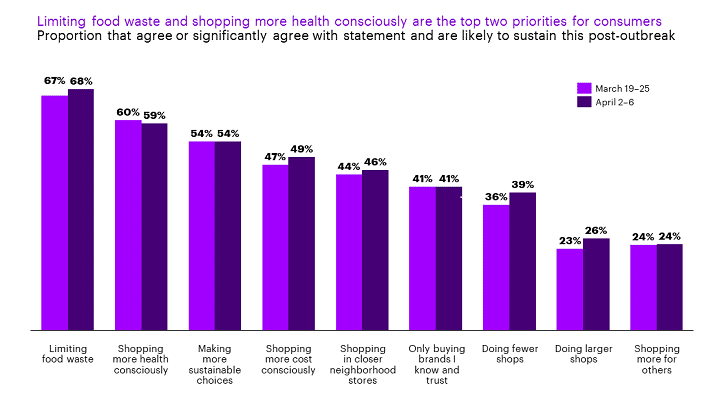
3. Prioritize trusted relationships
During COVID-19 worst periods, there were massive supply-chain disruptions. Many consumers couldn’t find their preferred product at their preferred retailer and hence changed their shopping behavior due to a loss of trust.
Value, availability, and quality of organic products were the main drivers for consumers trying a different brand.
-Mckinsey
The highest percentage of marketers surveyed expect customers to focus more on “trusting relationships” with brands and companies than on low prices, despite the economic downturn.
Customers are paying closer attention to the social activism, investment choices, and marketing messages of companies during such a sensitive time and show loyalty to brands that take a humanising approach in their outreach.
During a confusing time, consumers expect even better customer service where extra information, guidance, and support should be within reach.
Brands that go the extra mile with customer service and engagement, offering financial confidence and reassurance will forge even stronger relationships and form bonds with their regular customers, and earn strong reputational benefits among new customers.
4. Expect to make more online purchases post-COVID than before
The necessity of being digitally savvy has been highlighted more urgently than ever before during this period across all age groups. Consumers are significantly more open to digital offerings and experiences that will persist even after the pandemic recedes.
This suggests that businesses should be ramping up their digital marketing strategy even if overall marketing budgets shrink 8-10% next year, as many of those surveyed expect.
During this period, many turn to social media to get news of the latest and best products, and where open reviews and ratings can be publicly viewed. Hence, for businesses, Social media has become a critical brand-building and engagement tool.
84% of respondents report using social media for brand building and more than 54% have used it for customer retention during the pandemic.
That’s reflected in a 74% increase in social media budgets since February – a jump from 12.3% to 23.2% of total marketing spend. That reflects an important shift in the perception of the value of social media among marketing leaders, reversing a skeptical trend that’s persisted for the past few years.
(Forbes)
5. Blurred work-life boundaries
Since March 2020, many MNCs have announced for staff to embrace remote working as the new norm. Adjustments have been made and globally, more than 50% of businesses are currently still working from home. Almost 3 in 4 CFOs in a Gartner survey said they plan to shift at least a fifth of their team to telecommuting permanently for cost-cutting measures.
With people juggling so many competing demands on their time, brands must work harder than ever to offer products and services to suit consumers’ more diverse and complex work lives.
As people spend all their time at home, they want to make sure that they have the right chair, a headset, a keyboard, and a space in their homes to carry out their work. Similarly, due to the sheer amount of time being spent in the home, and also due to any extra activities canceled, leaving weekends completely free, we are seeing increases in consumer behaviour in the DIY sector. People look to use their time effectively by making improvements in the home.
Taking a deeper look at consumer electronics vertical further, the overall month on month growth from February to March includes many items that could also be attributed to the seismic shift to work from home:
- Mice and Keyboards +8.1%
- Video Conferencing tools +6.7%
- Mobile devices +9.9%
- Smart home +9%
(ChannelSight)
Seemingly, with the new remote working trend, increased demand for electronic products, and disrupted habitual behaviors, businesses are going to need to rethink what consumers want post-pandemic and how to position their business to drive sales and value.
What do Consumers Expect Today (Some takeaway stats)
- Support & Assistance: 64% believe it’s important for brands to provide them with guidance
- Confidence in purchases: 55% think it’s very or extremely important for brands to support them in making the right purchase decision
- Simplified Choice: 84% wish search identified their needs and narrowed down results to 5-10 choices
- Personalization: 70% want brands to interact with them on a personal level
While the decrease in customer visits may be obvious, other areas of change include:
- 84.8% – Increased openness to new digital offerings introduced during the pandemic
- 83.8% – Increased value placed on digital experiences
- 79.1% – A greater acknowledgment of companies’ attempt to do good
(V12data)
Conclusion
The pandemic is forcing a reassessment of values, habits, and consumption patterns, this does not come as a surprise.
Leaders need to quickly re-think recession marketing strategies or regret missing opportunities that might turn around their business.
Take full advantage of market research, consumer behaviour data, new customer acquisition approaches, and useful partnership opportunities.
Consumers’ values and behaviors research empowers companies to better understand their target audience, develop products and marketing strategies that resonate, enhance the customer experience, build a strong brand, and stay ahead of market trends. By leveraging these insights effectively, companies can gain a competitive advantage, attract and retain customers, and achieve long-term success in their industry.
Need help crafting a new dynamic funnel to meet expectations both offline and online ineffective marketing and sales performance?
Let us know. We’re happy to help.

